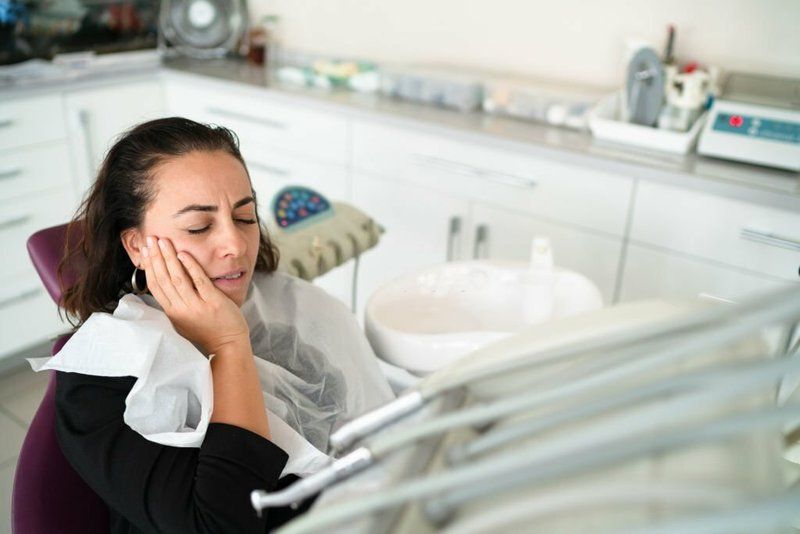
A Comprehensive Guide To Urgent Dental Care In Charlotte, NC
Emergency urgent dental care in Charlotte, NC, refers to dental treatment that requires immediate attention. This is primarily due to its severity or potential to cause significant discomfort or complications.
However, this information isn’t adequate! You must stay on your feet with all the decisions regarding dental emergencies. A small confusion in analyzing the problem could be a severe concern later.
This blog discusses urgent dental care while exploring different ways to navigate the situation. Continue reading as we learn more about dental emergencies in the following sections.
When Do You Need Immediate Dental Care?
Understanding the right time to seek immediate dental care can be a challenge. We say this because there are different types of emergencies: Some that can’t be avoided and some that can be contained at home before connecting with urgent care in Shallotte, NC.
Keeping the same in mind, let’s have a look at the different instances where you must seek immediate dental care:
Broken or Chipped Teeth
Broken or chipped teeth can be painful and may expose the inner dental pulp, leading to infection if not treated promptly.
Lost Dental Restorations
If a filling, crown, or dental bridge falls out or becomes damaged, it may need to be repaired or replaced urgently to prevent further dental issues.
Severe Gum Bleeding
Profuse or persistent gum bleeding may be a sign of gum disease or other oral health problems that require immediate dental care.
Orthodontic Emergencies
Issues with orthodontic appliances like braces, wires, or retainers, such as a broken wire or bracket, may require urgent attention to prevent discomfort or damage.
So now that we have an idea of different instances when you must seek immediate oral assistance, let’s have an overview of some to-do during a dental emergency.
List Of To-Do’s During A Dental Emergency
Analyze The Situation & Call Your Dentist
Determine the severity of the dental problem if it is a severe toothache, dental injury, broken tooth, or another issue that requires immediate attention.
Call your regular dentist or an emergency dental clinic as soon as possible. Explain your symptoms and the nature of the problem to the dental office staff. They can provide guidance on what to do next, offer appointment availability, and give you advice over the phone.
Try Pain Relievers To Contain The Pain
If you’re experiencing severe pain or discomfort, you can have pain relievers such as ibuprofen under the recommendation of a medical professional.
We suggest gently rinse your mouth with warm water if bleeding or a foreign object is stuck. This allows you to clean the area before your emergency dental visit.
Collect Your Tooth
If you’ve suffered a dental injury, such as a knocked-out or chipped tooth, try to collect any broken tooth fragments. On the contrary, if an implant is knocked out, handle it by the crown (top part) and rinse it gently with clean water.
Try to reinsert the broken tooth into the socket, but be careful not to touch its root. If reinsertion is impossible, moisten the tooth to the dentist by putting it in milk or a tooth preservation solution.
Try Some DIYs
If you have a severe toothache, try flossing gently to remove any potential debris between your teeth. Sometimes, trapped food particles can cause pain.
Or, if there is bleeding from the mouth or gums, apply gentle pressure with a clean cloth or gauze to the affected area to help control bleeding.
Dental emergencies can be distressing, but it’s essential to remain calm. Panic can make the situation feel worse. Additionally, it would be wise to follow any instructions or advice from your Carolina dentist.
These professionals can recommend temporary relief until you can visit their clinic.
What To Expect In An Emergency Dental Visit?
In emergencies, the primary objective of an urgent dental center is to provide you with immediate and appropriate dental care to address the patient’s urgent needs.
Here’s an overview of some measures taken by professionals during emergencies:
- Plan for Treatment: Once the dentist has assessed the situation, they develop a treatment plan tailored to your specific dental issue.
- Assessment of the Affected Area: After you’ve visited urgent dentistry, the dentist begins by assessing the patient’s condition and triaging the situation to determine the severity of the dental emergency. They will ask you about the symptoms, examine the affected area, and may use diagnostic tools like X-rays to aid in diagnosis.
- Pain Management: If you are experiencing significant pain or discomfort, the dentist’s priority is alleviating the pain. They may administer local anesthesia to numb the affected area or prescribe pain medications if necessary.
- Stabilization: Depending on the nature of the emergency, your dentist emergency may need to stabilize the patient’s condition temporarily. This could involve controlling bleeding, addressing dental infections, or immobilizing dental injuries.
- Perform Emergency Dental Procedures: Depending on the severity of your dental emergency, the dentist might have to perform emergency dental work like tooth extractions, dental fillings, root canal therapy, dental restorations, etc.
Conclusion
Dental emergencies are uncertain. Having a clear understanding of the situation and taking the right precautionary measures can go a long way in preserving your oral health.
Besides, don’t wait for your visit to urgent dentistry; instead, stay prepared with your preferred clinic, dental savings plan, and emergency contacts, among others. All the best!
Visit Us Today
At Carolina Coast, we’re your #1 emergency dentists in the area. We provide you with urgent care facilities that are ready to serve you any time of the day. Check out our services today.
